Abstract
The aspartokinase activity found in extracts of the bacterium Myxococcus xanthus was subject to feedback inhibition and feedback repression by l-threonine and l-lysine. Both types of inhibition were essentially additive. The required amino acids, l-isoleucine and l-methionine, caused considerable increase in the activity of the enzyme. This phenomenon is referred to as “feedback stimulation.” The polyamine, spermidine, exerted strong enhancement of the activity even at 0.1 mM. Meso-diaminopimelate, although not inhibitory by itself, abolished the activation exerted by either l-isoleucine or l-methionine. The possible physiological significance of interactions between the various effectors is discussed.
Full text
PDF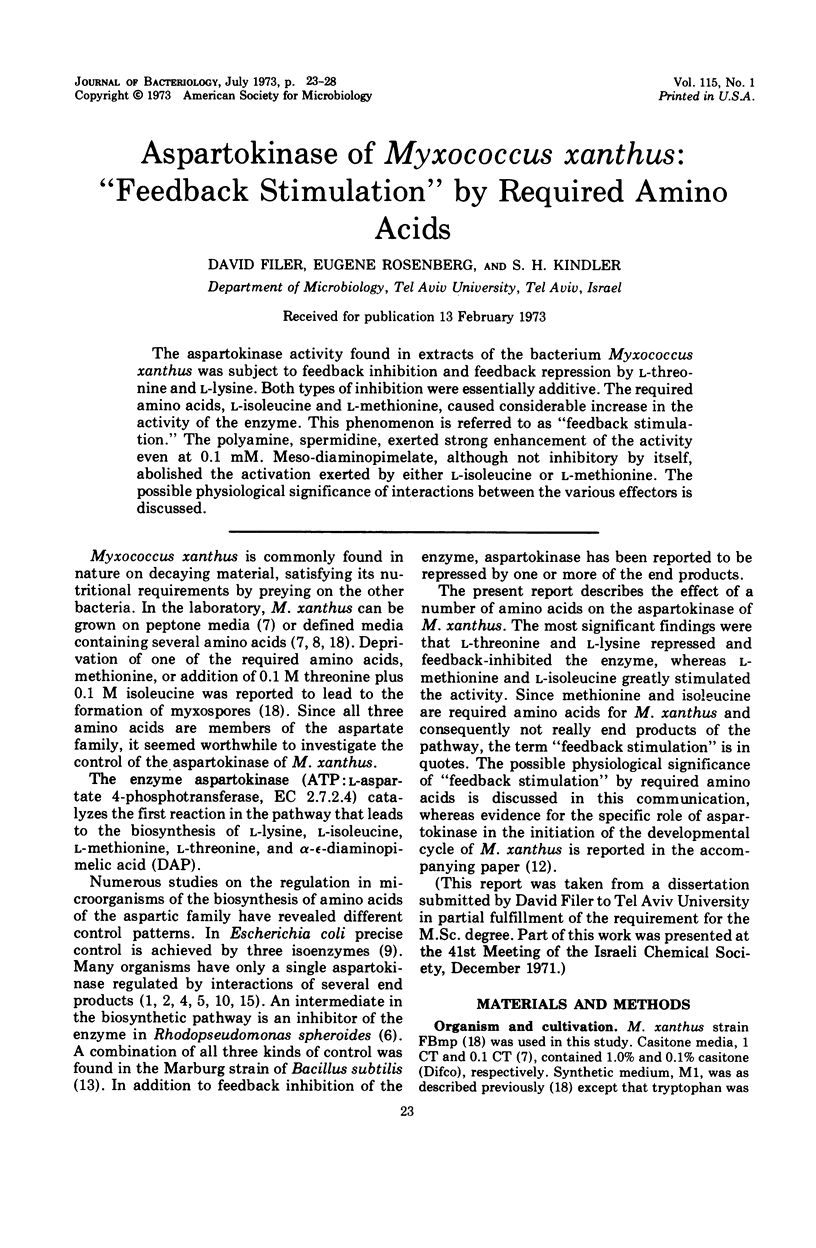
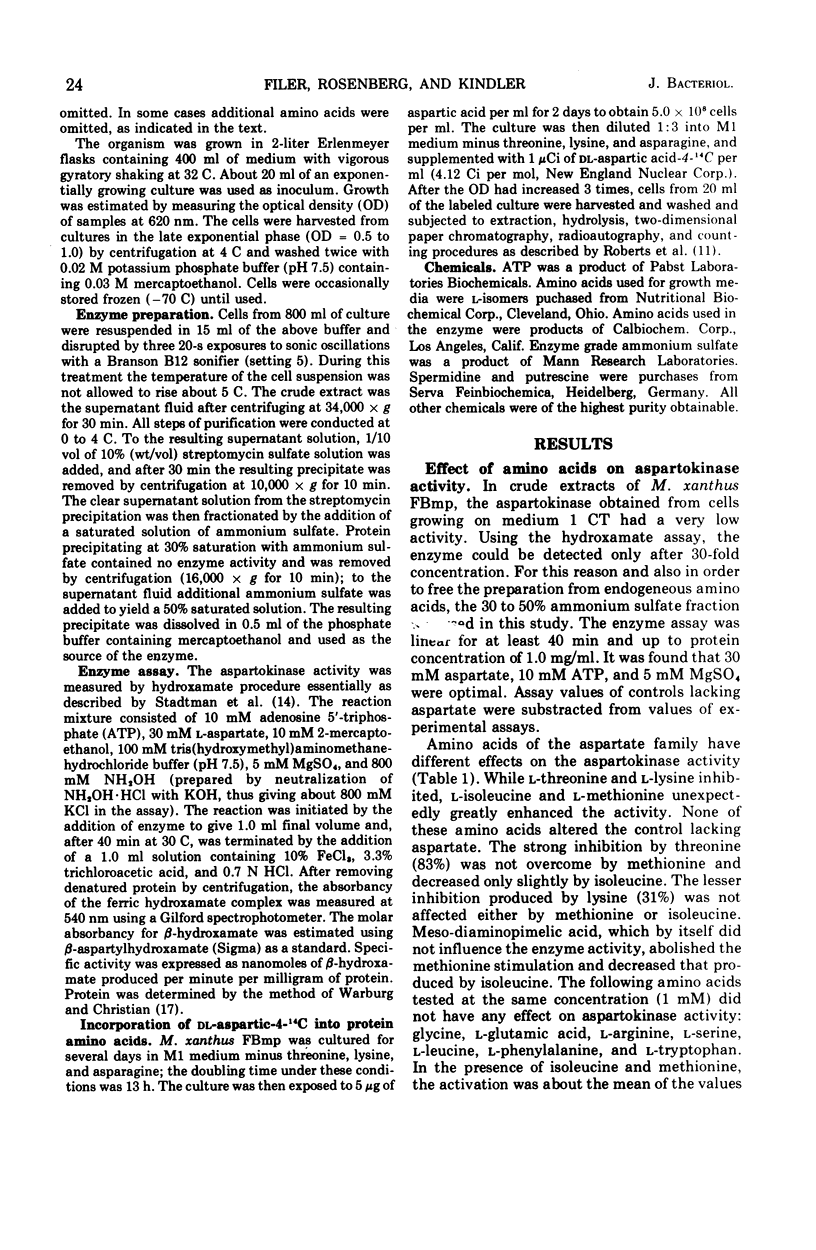
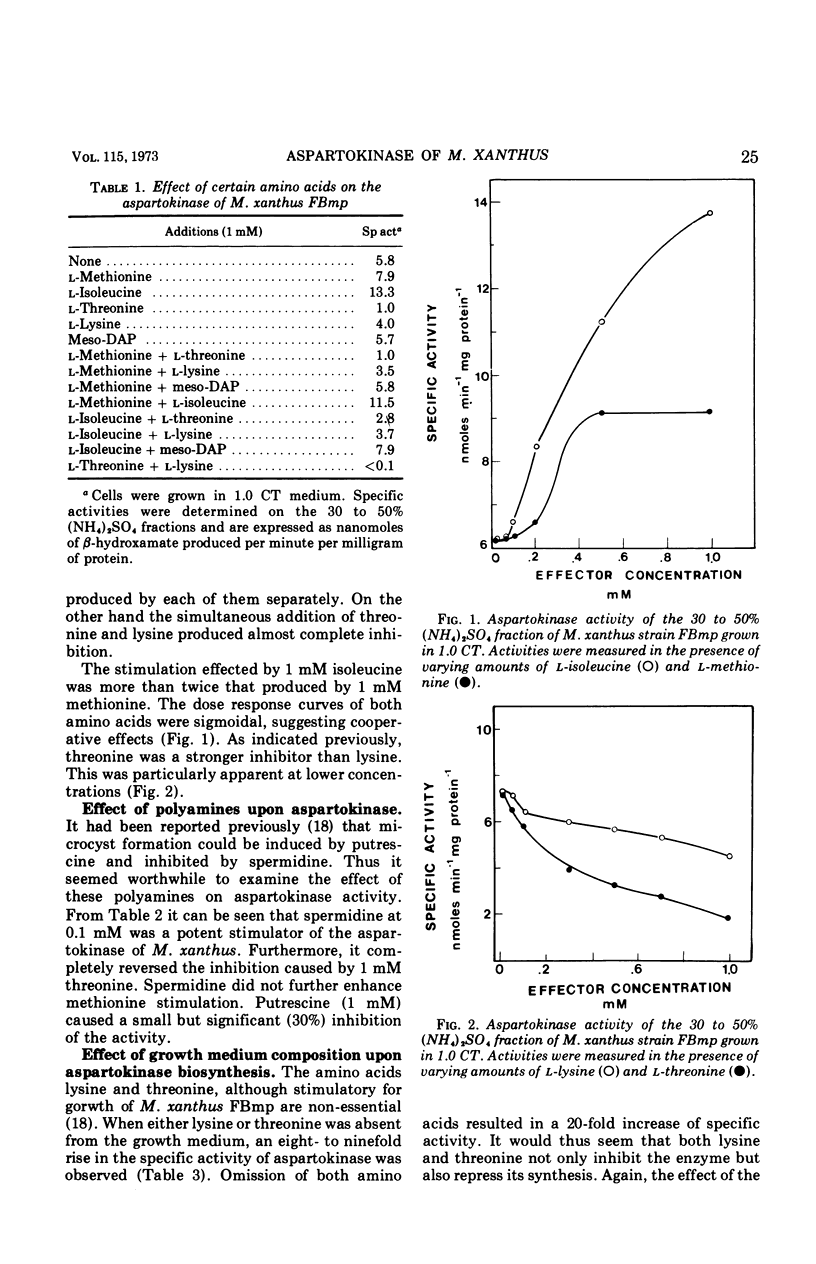
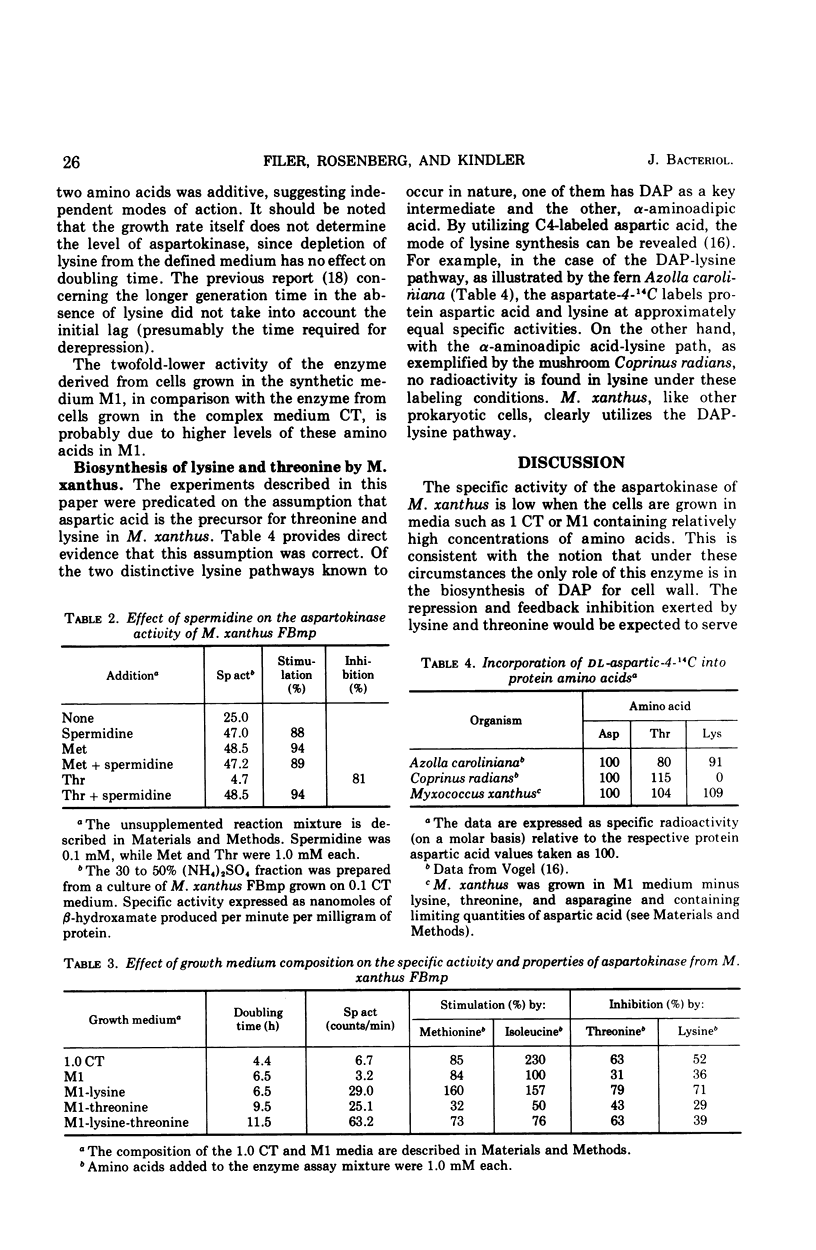
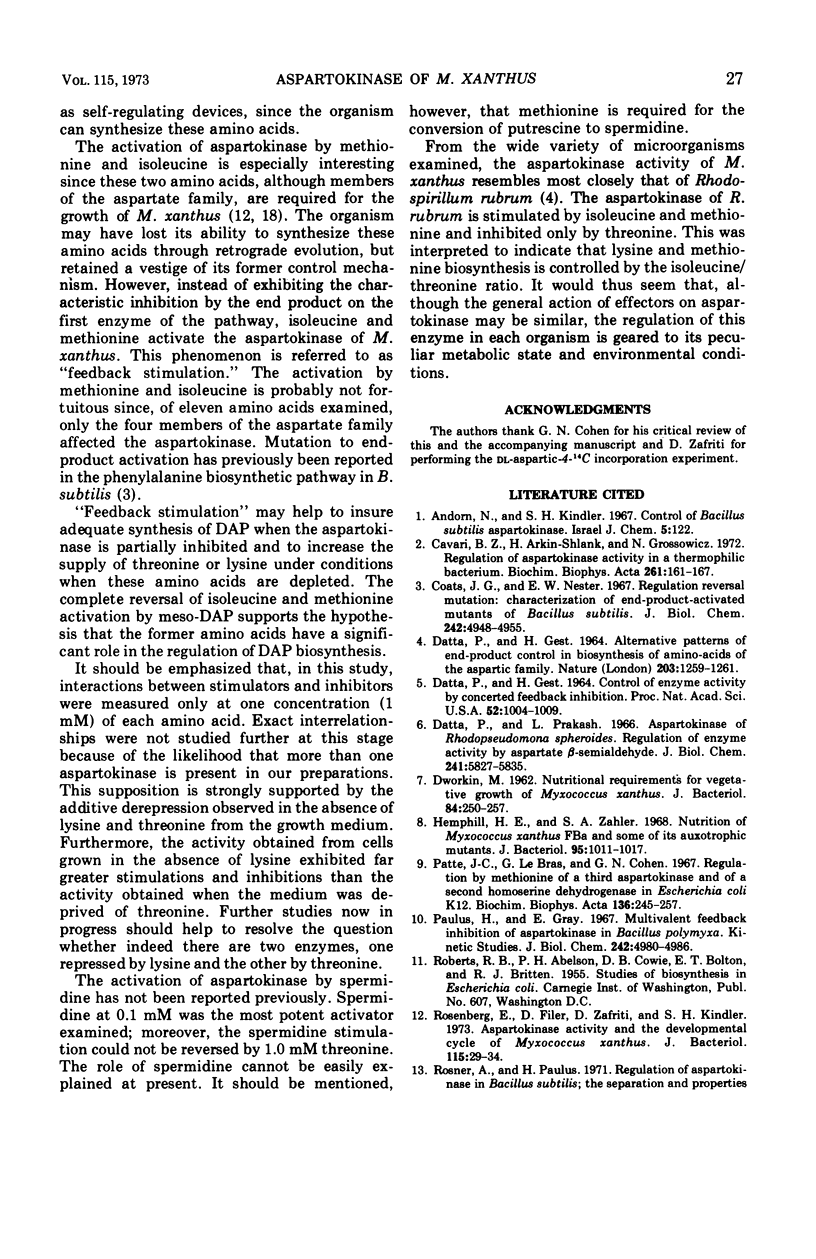
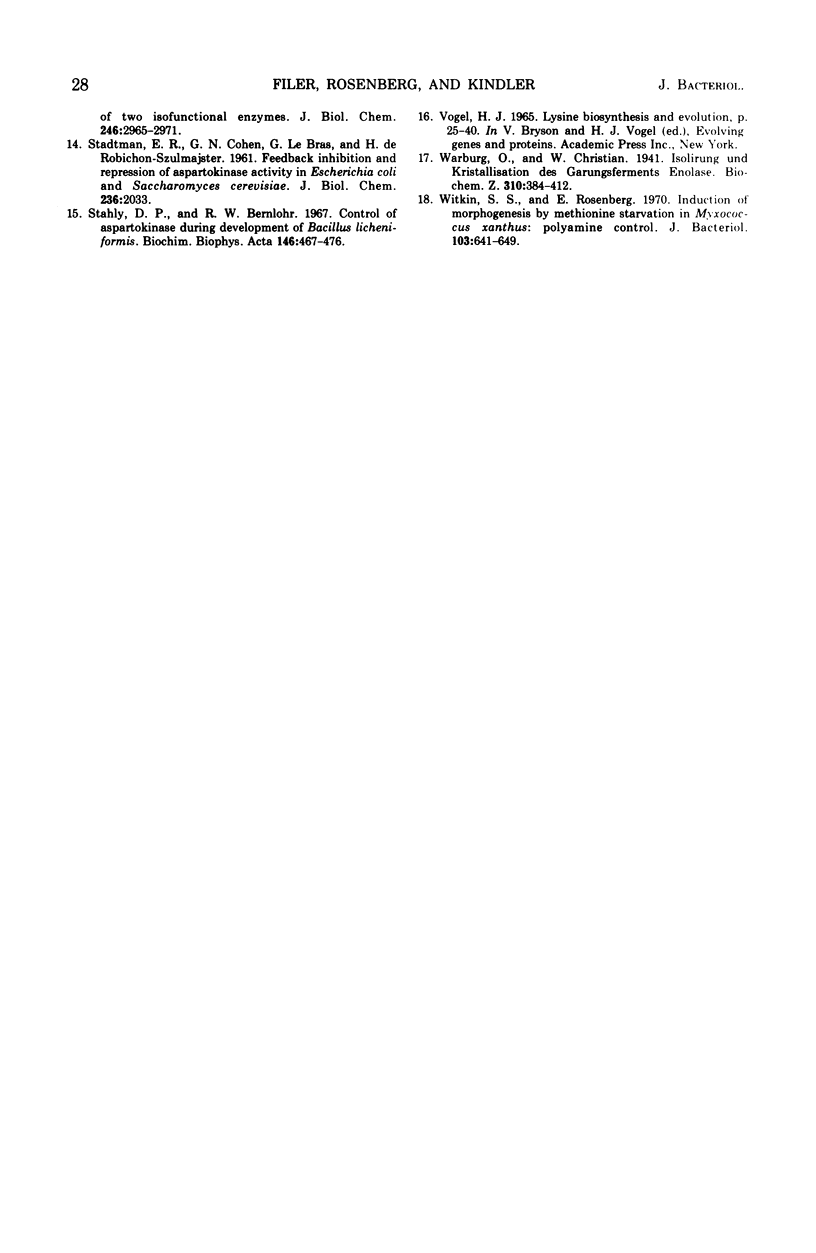
Selected References
These references are in PubMed. This may not be the complete list of references from this article.
- Cavari B. Z., Arkin-Shlank H., Grossowicz N. Regulation of aspartokinase activity in a thermophilic bacterium. Biochim Biophys Acta. 1972 Jan 28;261(1):161–167. doi: 10.1016/0304-4165(72)90325-x. [DOI] [PubMed] [Google Scholar]
- Coats J. H., Nester E. W. Regulation reversal mutation: characterization of end product-activated mutants of Bacillus subtilis. J Biol Chem. 1967 Nov 10;242(21):4948–4955. [PubMed] [Google Scholar]
- DATTA P., GEST H. ALTERNATIVE PATTERNS OF END-PRODUCT CONTROL IN BIOSYNTHESIS OF AMINO-ACIDS OF THE ASPARTIC FAMILY. Nature. 1964 Sep 19;203:1259–1261. doi: 10.1038/2031259a0. [DOI] [PubMed] [Google Scholar]
- DATTA P., GEST H. CONTROL OF ENZYME ACTIVITY BY CONCERTED FEEDBACK INHIBITION. Proc Natl Acad Sci U S A. 1964 Oct;52:1004–1009. doi: 10.1073/pnas.52.4.1004. [DOI] [PMC free article] [PubMed] [Google Scholar]
- DWORKIN M. Nutritional requirements for vegetative growth of Myxococcus xanthus. J Bacteriol. 1962 Aug;84:250–257. doi: 10.1128/jb.84.2.250-257.1962. [DOI] [PMC free article] [PubMed] [Google Scholar]
- Datta P., Prakash L. Aspartokinase of Rhodopseudomonas spheroides. Regulation of enzyme activity by aspartate beta-semialdehyde. J Biol Chem. 1966 Dec 25;241(24):5827–5835. [PubMed] [Google Scholar]
- Hemphill H. E., Zahler S. A. Nutrition of Myxococcus xanthus FBa and some of its auxotrophic mutants. J Bacteriol. 1968 Mar;95(3):1011–1017. doi: 10.1128/jb.95.3.1011-1017.1968. [DOI] [PMC free article] [PubMed] [Google Scholar]
- Patte J. C., Le Bras G., Cohen G. N. Regulation by methionine of the synthesis of a third aspartokinase and of a second homoserine dehydrogenase in Escherichia coli K 12. Biochim Biophys Acta. 1967 Mar 22;136(2):245–247. doi: 10.1016/0304-4165(67)90069-4. [DOI] [PubMed] [Google Scholar]
- Paulus H., Gray E. Multivalent feedback inhibition of aspartokinase in Bacillus polymyxa. I. Kinetic studies. J Biol Chem. 1967 Nov 10;242(21):4980–4986. [PubMed] [Google Scholar]
- Rosenberg E., Filer D., Zafriti D., Kindler S. H. Aspartokinase activity and the developmental cycle of Myxococcus xanthus. J Bacteriol. 1973 Jul;115(1):29–34. doi: 10.1128/jb.115.1.29-34.1973. [DOI] [PMC free article] [PubMed] [Google Scholar]
- Stahly D. P., Bernlohr R. W. Control of aspartokinase during development of Bacillus licheniformis. Biochim Biophys Acta. 1967;146(2):467–476. doi: 10.1016/0005-2744(67)90230-6. [DOI] [PubMed] [Google Scholar]
- Witkin S. S., Rosenberg E. Induction of morphogenesis by methionine starvation in Myxococcus xanthus: polyamine control. J Bacteriol. 1970 Sep;103(3):641–649. doi: 10.1128/jb.103.3.641-649.1970. [DOI] [PMC free article] [PubMed] [Google Scholar]


